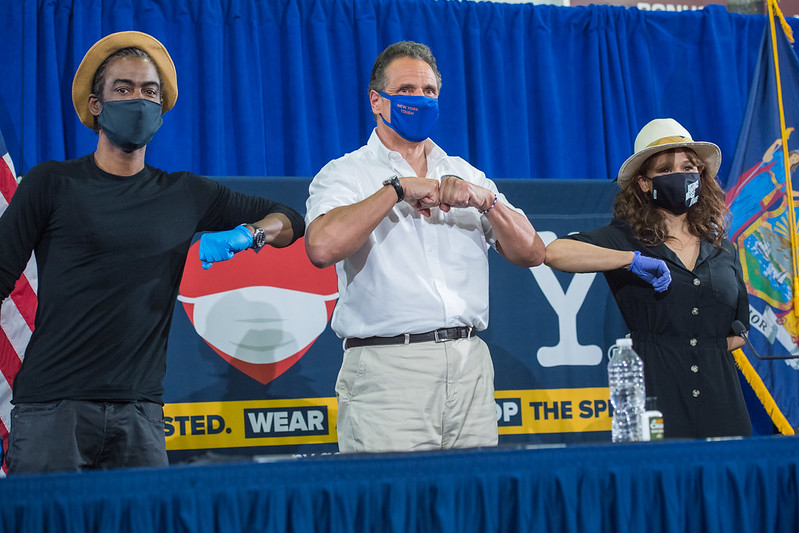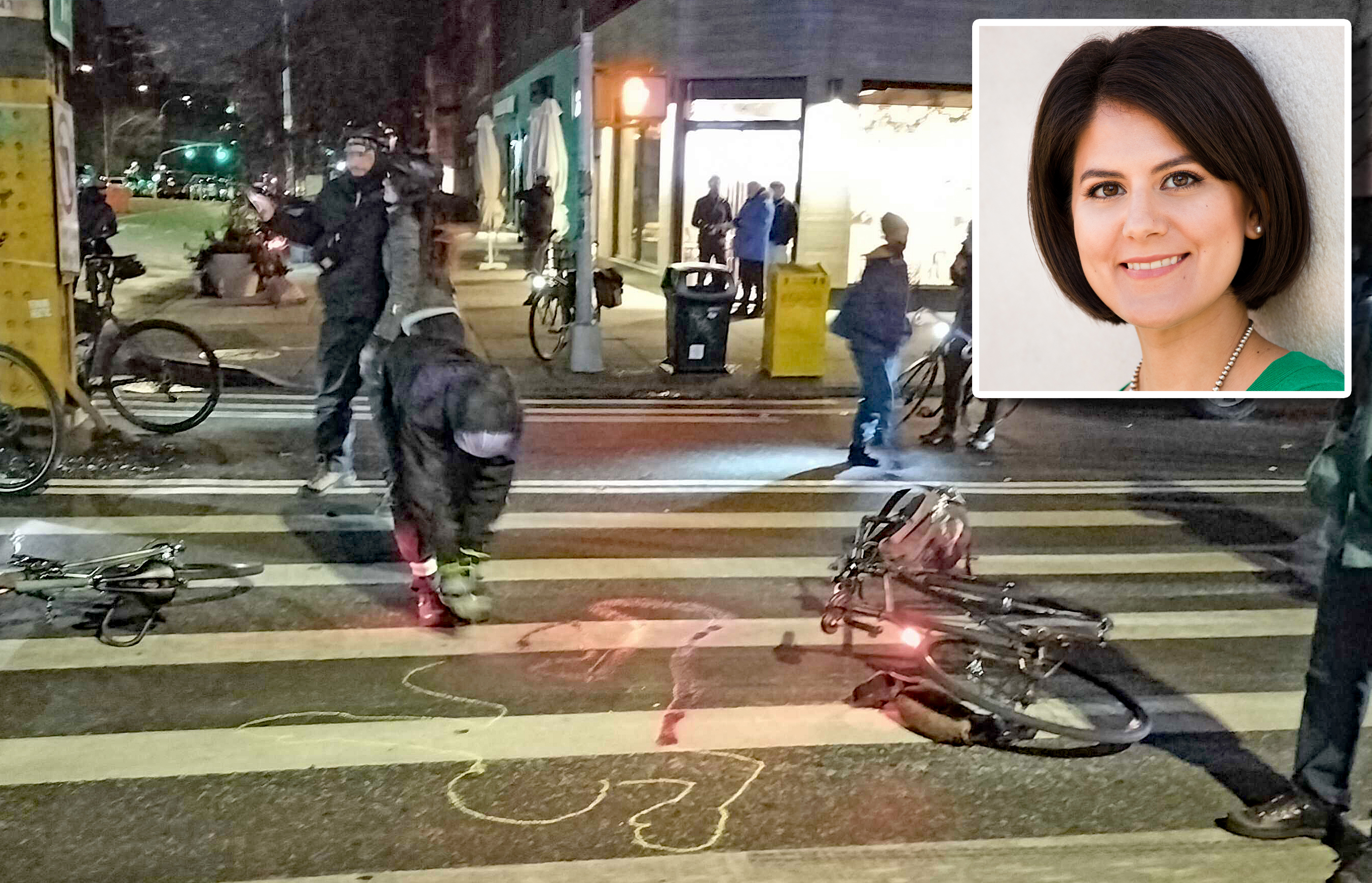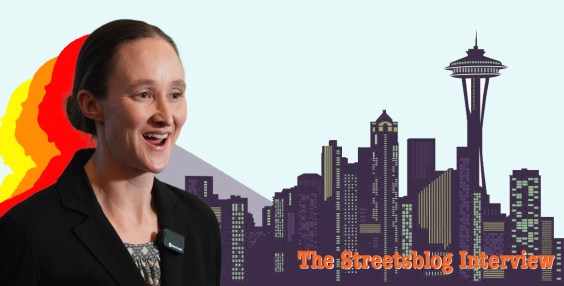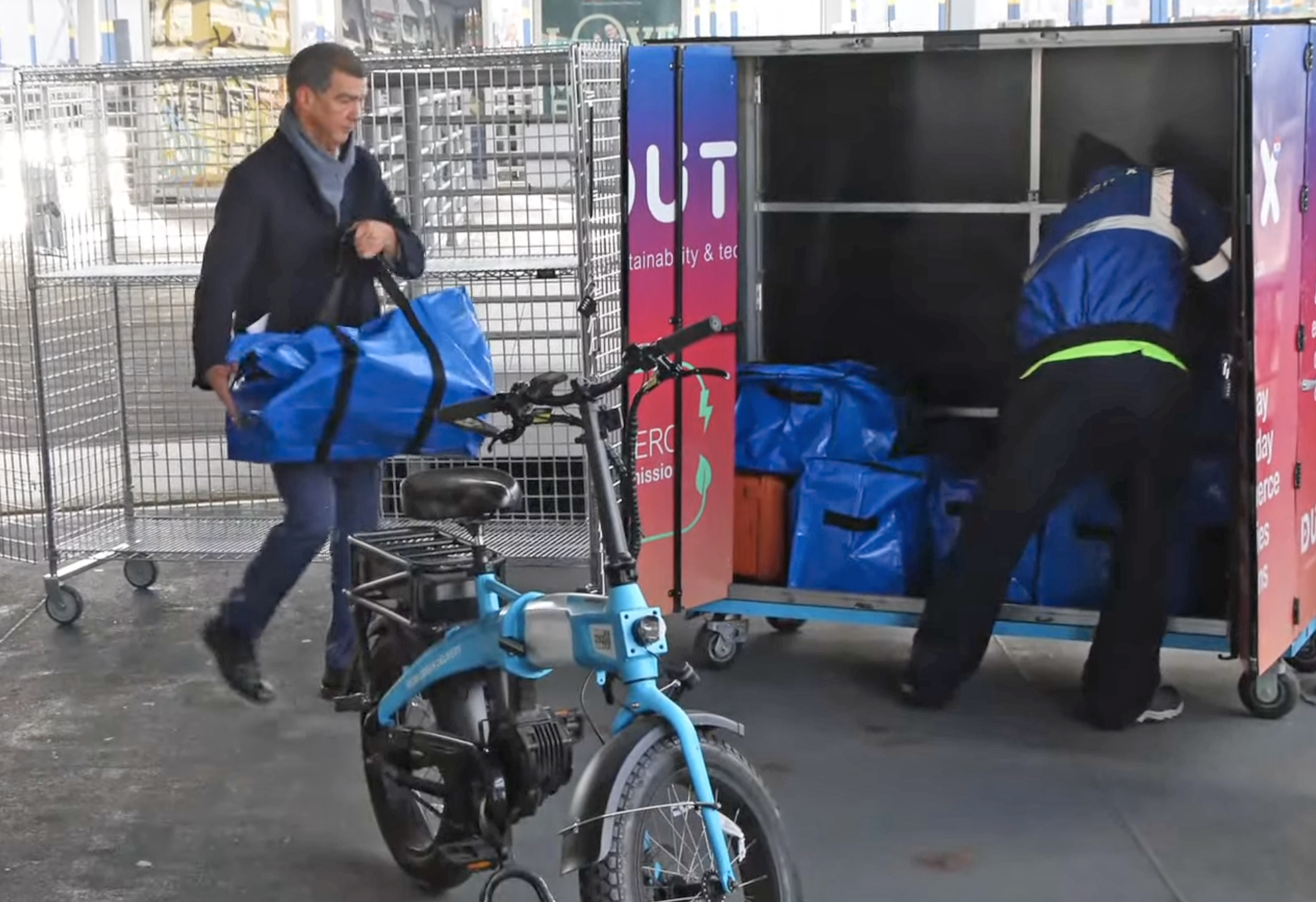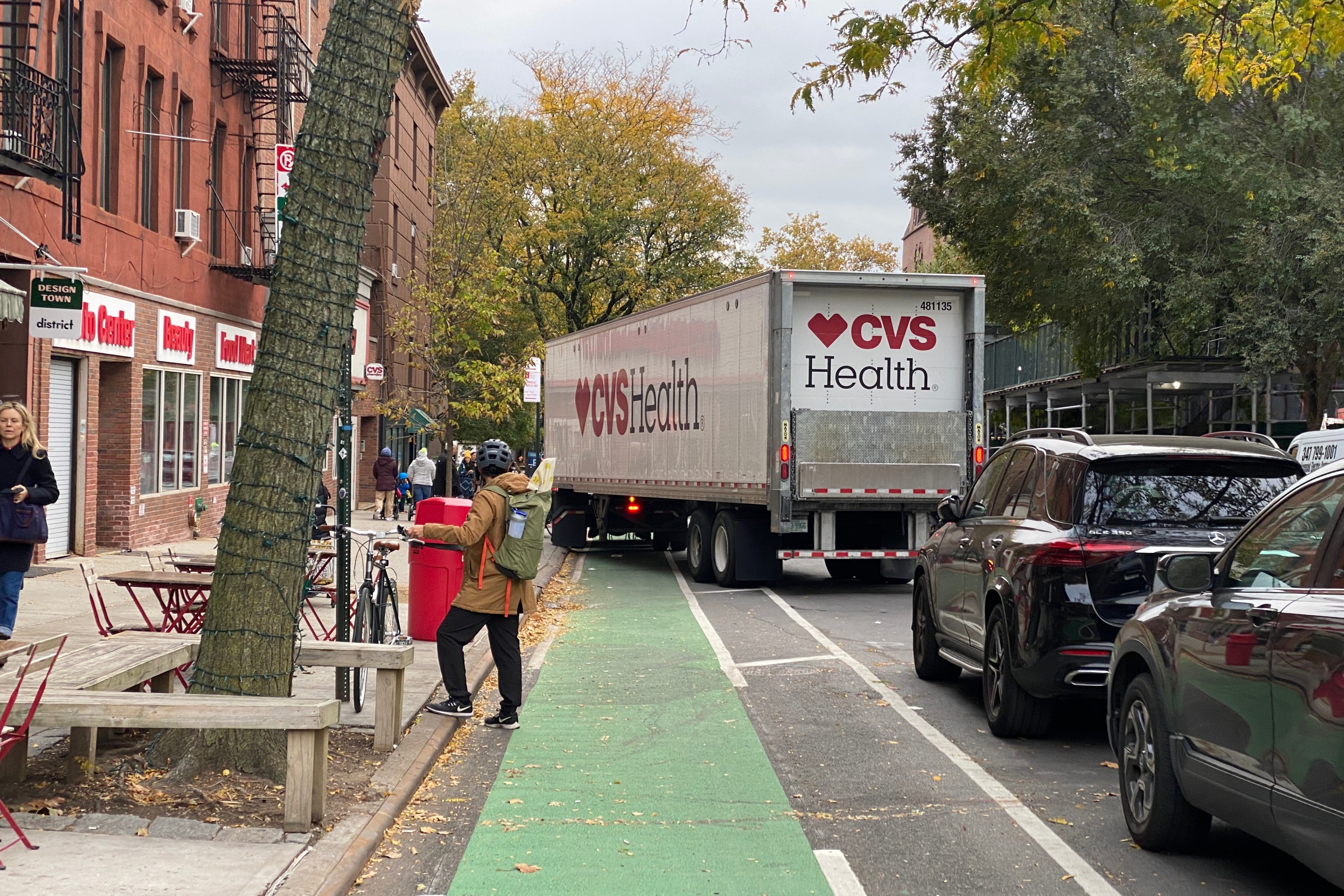Gov. Cuomo told reporters on Thursday that he didn't bring up congestion pricing during his infrastructure summit with President Trump a day earlier because the meeting between the two men was about jobs.
Asked why he did not actively lobby the president to move the stalled business district tolling plan out of its current federal purgatory, Cuomo said that he didn't think the Wednesday meeting was an appropriate time to bring it up.
"I was talking about primarily job-creating activities [Wednesday]," Cuomo said, even though his MTA has been waiting a year for Trump's Department of Transportation to tell it what kind of environmental review it must do to move the program along. "LaGuardia AirTrain would create jobs, also create an AirTrain which we need. The Cross Harbor Tunnels creates jobs. So we were focusing on job creation, Second Avenue Subway which is in Manhattan, goes up Second Avenue. Congestion pricing we’ve spoken about a number of times. That’s not necessarily a job creator, but it is very important for the city and the state and it requires a federal sign off that we’re still waiting for."
Cuomo then brushed off a follow-up about how congestion pricing is a primary funding mechanism of the MTA's historic $51 billion capital plan, which the MTA's own numbers (pg. 13) say is responsible for $75 billion of economic activity and 350,000 jobs in New York State. In that sense, Cuomo's answer was puzzling according to one transit advocate.
"Congestion pricing will be a bigger job creator than any of the projects the governor cited," said Ben Fried, spokesman for TransitCenter. "Not only is it necessary for an enormous chunk of the MTA capital program, it will also lift a massive dead weight off the local economy. People will have better access to jobs, employers will have a bigger potential workforce to draw from, and companies that depend on using the street network will do more business."
Fried said that Cuomo's answer also came up short because he didn't shed much light on what exactly is behind the ongoing delay as the MTA waits to hear whether the agency must complete a lengthy environmental impact statement, rather than an easier environmental assessment — which is required because congestion pricing affects travel on roads that at one time or another received federal funding.
Fried also said the answer doesn't give any confidence that the governor — who previously accused the federal government of holding congestion pricing hostage — is committed to implementing congestion pricing.
Other advocates were willing to take the governor's answer at face value.
"The governor can read a room well and perhaps thought this wasn't the time to bring congestion pricing up with the president," said Lisa Daglian, who heads the Permanent Citizens Advisory Committee to the MTA. "Specific projects are shiny objects that you can show and put your name on. Upgrading substations is not sexy. Building a new Second Avenue Subway phase is sexy."
Daglian said she didn't think leaving congestion pricing out of Wednesday's talks was a missed opportunity, since there could be future meetings between the President and the Big Dog (there is always time for Infrastructure Week after all).
"This won't be the first and last time they talk about the need for funding for capital projects," Daglian said. "But we're hopeful and confident that in future meetings, congestion pricing will be viewed as incredibly important to the rebuilding of the subway, and the economy and the entire Northeast region."
The Federal Highway Administration has repeatedly declined to give Streetsblog an update on the agency's review of congestion pricing.
